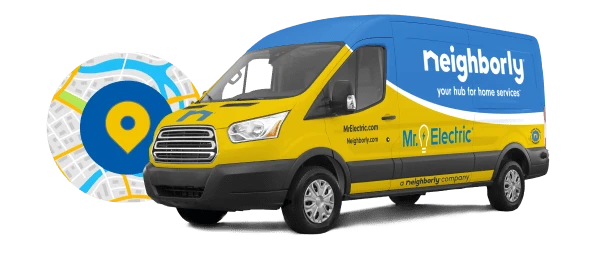.webp)
Mr. Electric explains how to determine the right generator size for your home.
|
Power outages can turn your home into a dark unfamiliar place, highlight the smell of that week-old tuna casserole in the fridge, or worse—stop a sump pump from draining excess water from your basement. Power outages can happen without warning, and having a whole home generator can give you peace of mind in these chaotic moments.
But now you may be wondering, “What size generator do I need for my home?” When it comes to determining how big of a generator you need for your house, it doesn’t mean how much room it takes up in your yard; it means the total wattage required to run your entire home.
Determining your specific wattage size requires a bit of math. Don’t panic, though! We’ve done most of the homework for you.
Why Is Proper Generator Sizing Important?
The size of your generator is important to make sure it can provide adequate power during emergencies. An improperly sized generator can cause:
- Possible damage to electronic devices:A generator that doesn’t have enough capacity available can provide uneven electricity, frying circuits.
- Insufficient power supply:With a smaller power supply to draw from than needed, your devices and appliances won’t be able to run at full capacity and will be damaged.
- Unit failure:Lastly, by overworking the generator, you could overwhelm it to the point where your unit shuts down entirely, resulting in thousands of wasted dollars.
Beyond just avoiding negatives, the positives of a properly sized home generator include:
- Ensuring maximum system life:With a generator that provides a little more power than your home requires, you will avoid problems like capacity overload and unit failure.
- Maintaining optimum performance:Undersized units provide uneven currents. With a steady and plentiful power supply, your devices will deliver optimum performance.
Related Topic:The ABCs of Safe Generator Operation
How to Determine Generator Size for a Home
Figuring out how big of a generator you’ll need for your home to operate fully on backup is simple. These four steps will walk you through it.
- Identify a list of a few appliances and devices that you deem the most important.That list should include things like your refrigerator, heating and cooling system, and light fixtures. Once you’ve identified everything that needs to be powered, you can calculate the amount of auxiliary power they’ll need.
- Use the chart below to estimate your home’s kilowatt requirements.Add up the wattage of each device in your home. You can use our chart below, but for the most accurate results, check the label or owner’s manual for large appliances and electronics to determine the exact wattage.
|
Electronics & Appliances |
Approximate Wattage |
|
Central Air Conditioner |
1700—750 |
|
Electric Furnace |
18,000 |
|
Gas Furnace |
600 |
|
Electric Baseboard Heaters |
225 per foot (by heater length) |
|
Electric Heat Pump |
Up to 15,000 |
|
Water Pump |
500-1050 |
|
Electric Water Heater |
4500 |
|
Gas Water Heater |
500 running/1500 starting |
|
Lighting |
500 |
|
Garage Door Opener |
550-725 |
|
Computer |
200 |
|
Television |
300 |
|
Dishwasher |
700 |
|
Refrigerator |
600 |
|
Gas Dryer |
700 |
|
Electric Dryer |
5750 |
|
Washing Machine |
750 |
|
Microwave |
1000 |
|
Standalone Freezer |
2500 |
|
Electric Oven |
2500-5000 |
- Once you have the totalwattage for the devices in your home, divide the sum by 1,000.That’s the number of watts needed to calculate the kilowatts for your new generator.
- Choose a generator slightly bigger than your needs.After you combine your necessary appliances’ total wattage together, round up from the total, and purchase a generator that exceeds your household’s needs. This will allow you to add a cushion to your generator usage.
Choose Mr. Electric for Home Generator Installation
Being without power is not only an inconvenience but can also be potentially dangerous during extreme weather. If you are ready to commit to a whole house generator and want to be certain your generator is installed and sized appropriately, contact your local professionals at Mr. Electric forhome backup generator installation. We can help you choose the right size generator for your home and install it to give you and your family peace of mind during the next power outage. To get started, schedule an appointment online or call today.
